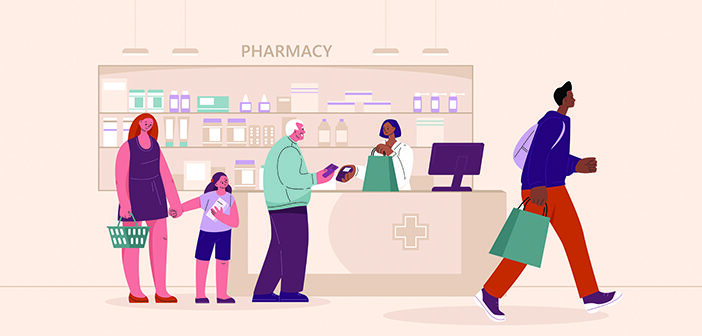Study shows patients can safely begin opioid addiction treatment in community pharmacies.
Pharmacies can be a safe place for patients to start treatment for opioid use disorder, a study has found.
Researchers at Brown, Rhode Island Hospital, and the University of Rhode Island also found that pharmacists can keep patients better engaged than the usual care with a physician.
“With over 100,000 overdose deaths in 2022 and an opioid crisis impacting states across the country, improving access to buprenorphine is a critical and necessary next step,” says Traci Green, PhD, lead study author and an adjunct associate professor of emergency medicine at Brown.
“Dramatically increasing capacity to provide good, lifesaving treatment for people with opioid use disorder through pharmacies is an approach that could be ramped up today,” adds Green, who is also the deputy director of Rhode Island Hospital’s Center of Biomedical Research Excellence on Opioids and Overdose. “It’s a game changer.”
The first-of-its-kind pilot study, published in the New England Journal of Medicine, documents the experiences of 100 patients who started taking buprenorphine after visiting a specially trained pharmacist for their care. Once stabilized on the medication, 58 patients were randomly assigned to receive either continued care in the pharmacy or usual care in a clinic or doctor’s office.
After one month, the patients in the pharmacy care group showed dramatically higher rates of retention: 25 continued to receive treatment in the pharmacy, compared to five in the usual care group.
“To have so many people in the pharmacy group continue on with their care was completely unexpected,” Green says. “The results from this pilot study show how pharmacies can be an effective and viable pathway to treatment for opioid use disorder.”
A third of patients in the study identified as people of color, and almost half were without a permanent residence.
Linda Rowe-Varone, PharmD, a clinical pharmacist who provided buprenorphine to study participants, says a patient told Rowe-Varone that she found the pharmacy hours to be much more convenient than the clinic she previously visited, and that she felt safe and comfortable enough to bring her children with her to treatment appointments.
“I met people who could be my family members, my neighbors, people I work with, people I pass walking on the street, and they would come into our pharmacy for help,” Rowe-Varone says. “They wanted to become healthy again. … I feel as if we’re right there for them.”




